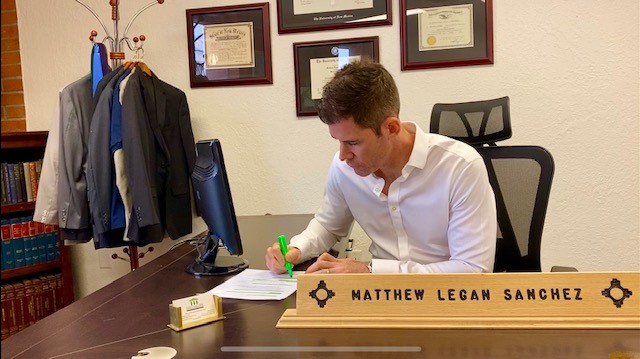
Re-opening Property Division Issues After Your Divorce in New Mexico
New Mexico Community Property Laws
New Mexico’s community property laws are relatively straightforward. Generally speaking, any property/asset accumulated during the marriage is community property and can be divided 50-50 upon divorce. The exception to this rule applies to gifts, inheritances, or pain and suffering awards that are accumulated during the marriage.
Now that we are on the same base with New Mexico’s community property laws, let me throw you a common legal curve ball: What happens when community property is acquired during one’s marriage but remains undivided after the divorce is finalized?
REOPENING PROPERTY DIVISION ORDERS AFTER YOUR DIVORCE HAS BEEN FINALIZED IN NEW MEXICO
The issue of undivided property generally occurs when parties are pro se (i.e. not represented by an attorney) and the Marital Settlement Agreement that distributes assets/debts does not address community property accumulated during the marriage.
Possibly the property at issue was undisclosed and is newly discovered. Maybe fraud or a breach of fiduciary duty is involved. Potentially the parties rushed to finalize the divorce, glossing over the community property at issue and pushing the divorce through the Court’s door.
NMSA § 40-4-20 governs undivided community property/assets. This New Mexico statute provides the parties to a divorce with the ability to file a Petition to Divide Undivided Community Property, in a separate action from the original divorce proceedings. In other words, NMSA 40-40-20 provides divorced individuals with the power to request a New Mexico Court to address community property that was accumulated during the marriage – but undivided upon divorce.
Similar to most elements of law, NMSA § 40-4-20 comes with limitations and exceptions. One of these limitations exists with NMSA § 37-1-4, which requires a Petition seeking to address undivided community property to be filed within four years from the date that the divorce is granted. See Plaatje v. Plaatje, 1981-NMSC-040, 95 N.M. 789, ¶¶ 8-9.
There are two circumstances when the four-year statute of limitations does not apply to undivided property: (1) Retirement Benefits, (2) Real Property.
I. Retirement Benefits
Retirement benefits accumulated during the marriage are community property and divided 50-50 upon divorce.
Undivided retirement benefits are distinguishable from other types of undivided property.
Retirement payments that are ongoing in nature, or received through monthly installment payments can affect the corresponding statute of limitations. For instance, when an individual is receiving monthly installment payments, the four year statute of limitations begins ticking on the date that each installment payment is received.
In other words, the statute of limitations bars one’s claim to dividing retirement benefits that were paid and received more than four years before the Petition’s filing date. Nevertheless, ongoing and/or future retirement payments escape the statute of limitations and are subject to division.
II. Real Property
“Real Property” is legal jargon meaning land and buildings.
Property that is acquired during one’s marriage is presumed to be community property. See NMSA § 40-3-12(A).
Once divorced, undivided community property becomes a tenancy in common (i.e. a shared tenancy in which each holder owns a distinct and separately transferable interest in the property).
One’s failure to divide real property at divorce does not affect one’s subsequent property rights. See In re Miller’s Estate, 44 N.M. at 200; see also NMSA § 40-4-20 – discussed above.
Based on the New Mexico law discussed above, the four-year statute of limitations does not bar one’s right to divide land or buildings (i.e. real property) that was accumulated during the marriage, but undivided after divorce. See Martinez v. Martinez, 83 P.3d 298, 135 N.M. 11, ¶ 19.
In other words, at any time after the divorce, one can seek to divide real property that was accumulated during the marriage, but for whatever reason, was left undivided after the divorce was finalized.
(505) SANCHEZ IS HERE TO ANSWER QUESTIONS ABOUT RE-OPENING PROPERTY DIVISION ISSUES AFTER YOUR DIVORCE IN NEW MEXICO
Do you have community property that was not addressed in your martial settlement agreement and divorce? Do you still have questions about re-opening property division issues after your divorce in New Mexico? Post-divorce in Albuquerque often requires the experienced hand and knowledge that comes with years of courtroom practice. Matthew Legan Sanchez has the experience needed to handle your unique case. Sanchez can be reached by calling (505) SANCHEZ.

Re-opening Property Division Issues After Your Divorce in New Mexico






